ISSUE 6: Food
Sometimes food is just food. One more quick sandwich before a meeting or a soccer game. One more bowl of Cheerios. Rice. But other times food is elevated to a stature above basic sustenance.
In her politico-historical creative nonfiction piece, “Cumin and Camels,” Holly Kapherr writes of “earthenware dishes full of the sweet smell of home.” I am willing to bet that if you close your eyes and think back to your childhood, you will conjure a smell that envelops you in warm memories that will make your mouth water (and quite possibly your eyes water, too.)
Words like hunger, devour, starve and satiate take on connotations beyond what happens in the kitchen or at the dinner table and sometimes straight on into the bedroom. In Xan Roberti’s poem, the two lovers are “lust hungry.” In Lee Schwartz’ “Breaking Dishes,” they are “licking the apple of surrender.” We surrender to our desires—for chocolate, for fried chicken, for breakfast in bed, for memorable peaches, for what whets our appetites and what slakes our thirsts, for what we want to eat.
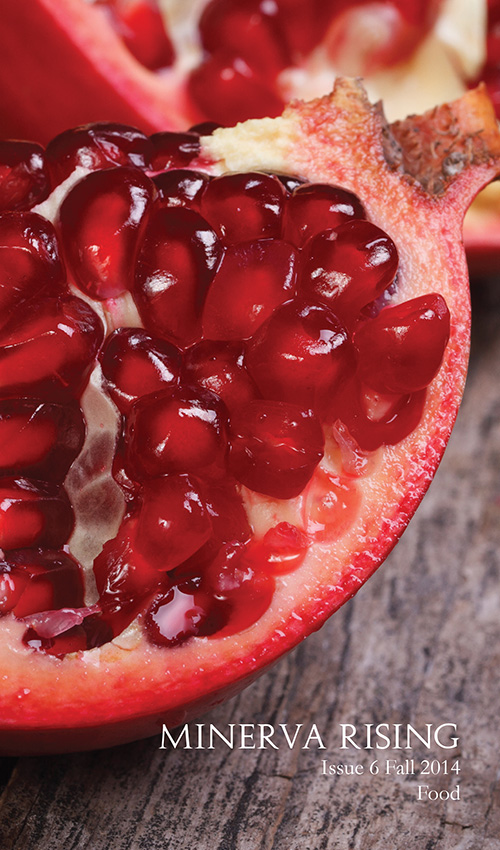
Contributors
We are proud to feature the following amazing contributors in this issue of Minerva Rising. Thank you for being a part of the Minerva community.
Shawn Aveningo
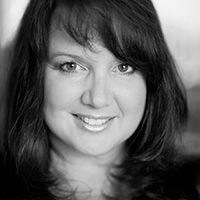 Shawn Aveningo is a globally published poet whose work has appeared in over 60 literary journals and anthologies, as well as five poetry collections. She wrote Strawberry Jam one summer afternoon after buying strawberries at a roadside fruit stand in Northern California. Shawn shares the creative life with her best friend & soul-mate in Portland, OR, and she absolutely loves red shoes. www.RedShoePoet.com
Shawn Aveningo is a globally published poet whose work has appeared in over 60 literary journals and anthologies, as well as five poetry collections. She wrote Strawberry Jam one summer afternoon after buying strawberries at a roadside fruit stand in Northern California. Shawn shares the creative life with her best friend & soul-mate in Portland, OR, and she absolutely loves red shoes. www.RedShoePoet.com
B.E. Beck
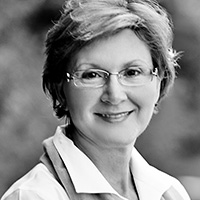 B.E. Beck was born in a “holler” in the beautiful state of Kentucky, but unlike Helen Sue was surrounded by loving siblings. She is a life-long learner and educator who taught at the University of Minnesota Duluth and in the Seattle Community College District. Her inquisitive nature, belief that food can be about people and relationships, and love of travel have led to her seeing the world.
B.E. Beck was born in a “holler” in the beautiful state of Kentucky, but unlike Helen Sue was surrounded by loving siblings. She is a life-long learner and educator who taught at the University of Minnesota Duluth and in the Seattle Community College District. Her inquisitive nature, belief that food can be about people and relationships, and love of travel have led to her seeing the world.
Jennica Broom
 Food is its own kind of language. We communicate through cooking—feelings of love, anger, sadness, passion. How we eat, what we eat, and with whom we eat reveal who we are. For Ethel, food is a way of communing with the past in the presence of an uncertain and quiet future.
Food is its own kind of language. We communicate through cooking—feelings of love, anger, sadness, passion. How we eat, what we eat, and with whom we eat reveal who we are. For Ethel, food is a way of communing with the past in the presence of an uncertain and quiet future.
Lucy Bryan Green
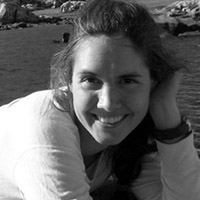 This is the story of what happened when my boyfriend asked me to make beef heart for dinner. I also explore the tension between my feminism and my role in the kitchen, the ways that cooking and eating influence romantic attraction, and the moral conflicts and misconceptions that accompany meat consumption. My essays and short stories have appeared in Nashville Review, Superstition Review, Word Riot, and So-to-Speak, among others. I hold an M.F.A. from Penn State University and recently joined the Writing Center faculty at James Madison University.
This is the story of what happened when my boyfriend asked me to make beef heart for dinner. I also explore the tension between my feminism and my role in the kitchen, the ways that cooking and eating influence romantic attraction, and the moral conflicts and misconceptions that accompany meat consumption. My essays and short stories have appeared in Nashville Review, Superstition Review, Word Riot, and So-to-Speak, among others. I hold an M.F.A. from Penn State University and recently joined the Writing Center faculty at James Madison University.
Melissa Fast
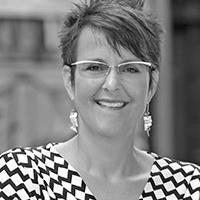 Melissa Fast is ecstatic to be included in the food and cooking issue of Minerva Rising. During the day, Melissa spins words as a public relations and marketing professional. In her free time, she slugs large quantities of French-press coffee as she plays with words in hopes of making sense of her world. When words don’t work, she often turns to her kitchen to search for answers. Combining words and cooking bring her utter delight.
Melissa Fast is ecstatic to be included in the food and cooking issue of Minerva Rising. During the day, Melissa spins words as a public relations and marketing professional. In her free time, she slugs large quantities of French-press coffee as she plays with words in hopes of making sense of her world. When words don’t work, she often turns to her kitchen to search for answers. Combining words and cooking bring her utter delight.
Amanda Futrell
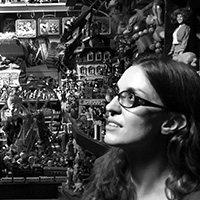 It’s really difficult to think about food and women without pondering the sometimes difficult relationship between the two. Also, it seems to me, impossible to discuss food without mulling over the various politics surrounding the female body: a private matter that is very much public, an autonomous entity so long as she conforms. All these things crossed my mind while writing E.D.N.O.S.
It’s really difficult to think about food and women without pondering the sometimes difficult relationship between the two. Also, it seems to me, impossible to discuss food without mulling over the various politics surrounding the female body: a private matter that is very much public, an autonomous entity so long as she conforms. All these things crossed my mind while writing E.D.N.O.S.
Laurie Granieri
 I’ve adopted a mantra: Forget big—go small. Inspiration and beauty aren’t sequestered in church, on an ashram or on the mountaintop; inspiration and beauty live at our nicked kitchen tables. My grandmother intuited the relationship between ritual and the act of eating: She drew ritual to her table when she ate a sliced orange off the “good” china. The orange on the good china says, “This rain-soaked morning in New Jersey? It’s china-worthy.”
I’ve adopted a mantra: Forget big—go small. Inspiration and beauty aren’t sequestered in church, on an ashram or on the mountaintop; inspiration and beauty live at our nicked kitchen tables. My grandmother intuited the relationship between ritual and the act of eating: She drew ritual to her table when she ate a sliced orange off the “good” china. The orange on the good china says, “This rain-soaked morning in New Jersey? It’s china-worthy.”
Karen Greenbaum-Maya
Karen Greenbaum-Maya, retired clinical psychologist, German major, Pushcart nominee and occasional photographer, no longer lives for Art, but still thinks about it a lot. She started trying to cook when she was six, out of hunger and in self-defense. For five years, she reviewed restaurants for the Claremont Courier, sometimes in heroic couplets, sometimes in anapest, sometimes imitating Hemingway. “Real Poem” received Honorable Mention in the 2013 Muriel Craft Bailey Memorial Competition, and “The poem is a space casual” received Honorable Mention in Found Poetry’s 2013 inaugural Dog-Ear Poetry contest. Kattywompus Press publishes her two chapbooks, Burrowing Song and Eggs Satori (in press). She lives in Claremont, California. Find links to work online at: www.cloudslikemountains.blogspot.com.
Helen Grochmal
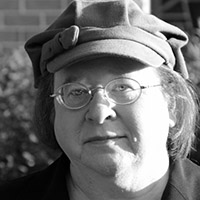 Thanksgiving is a holiday that focuses on food but is mostly not about the food. Spending time choosing the “right” table settings and remembering happy times from the past can be ways of coping on a day when being alone can make a person feel like a failure in life, a feeling that must be resisted. I just happen to live in a retirement home with my cat.
Thanksgiving is a holiday that focuses on food but is mostly not about the food. Spending time choosing the “right” table settings and remembering happy times from the past can be ways of coping on a day when being alone can make a person feel like a failure in life, a feeling that must be resisted. I just happen to live in a retirement home with my cat.
Holly V. Kapherr
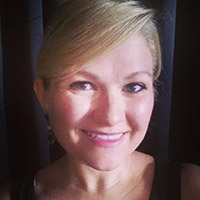 This essay is part of a collection of essays focusing on food culture as the thread that binds us together as humans. Cumin & Camels relates my experience as a 12-year-old girl visiting a country most never get to see—Saudi Arabia—and how my perceptions of food, women’s rights, travel and culture were shaped by this trip.
This essay is part of a collection of essays focusing on food culture as the thread that binds us together as humans. Cumin & Camels relates my experience as a 12-year-old girl visiting a country most never get to see—Saudi Arabia—and how my perceptions of food, women’s rights, travel and culture were shaped by this trip.
Dawn McDuffie
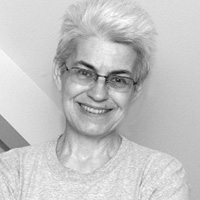 Food is basic and powerful. Some days I turn recipes into poems and find myself cooking metaphors. Since I’m well into my years of wisdom, I’ve nourished myself and others many times, and I’ve written down all the successes and failures. I live in Detroit where something always simmers on the back burner.
Food is basic and powerful. Some days I turn recipes into poems and find myself cooking metaphors. Since I’m well into my years of wisdom, I’ve nourished myself and others many times, and I’ve written down all the successes and failures. I live in Detroit where something always simmers on the back burner.
Meagan Reilly
 Food has a magical way of bringing people together. Whether it is gathering with one’s loves around a table of turkey and mashed potatoes, a venture under the hot sun to pick strawberries, or coffee with a friend, the conversations and connections that are made over a shared food experience are priceless and unforgettable.
Food has a magical way of bringing people together. Whether it is gathering with one’s loves around a table of turkey and mashed potatoes, a venture under the hot sun to pick strawberries, or coffee with a friend, the conversations and connections that are made over a shared food experience are priceless and unforgettable.
Cait Reynolds
 Transplanter, writer, lover, human being. Not necessarily in that order.
Transplanter, writer, lover, human being. Not necessarily in that order.
Xan L. Roberti
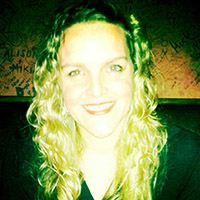 Xan L. Roberti is the winner of the 2014 New South Poetry Contest and runner up in the Mississippi Valley Poetry Contest 2013. She enjoys the intersection of art and food and the ritual of dinner as love. Her poems are published in numerous magazines. Her memoir “Portable Housing” was nominated for the Walter Sindlinger Award. She is a contributor to LitSeen. She lives in San Francisco on a windy hill.
Xan L. Roberti is the winner of the 2014 New South Poetry Contest and runner up in the Mississippi Valley Poetry Contest 2013. She enjoys the intersection of art and food and the ritual of dinner as love. Her poems are published in numerous magazines. Her memoir “Portable Housing” was nominated for the Walter Sindlinger Award. She is a contributor to LitSeen. She lives in San Francisco on a windy hill.
Lee Schwartz
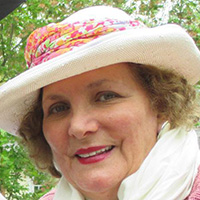 Lee Schwartz has won the Paterson Literary Review Prize two years in a row. She will appear in Trans Bodies, Trans Selves, 2014. Her chapbook, Sawing A Lady In Half, appears online in Interrupt Magazine. Journals include The Mom Egg, Passager, Ars Medica and Ananda. She has served as an Artist in Residence at the 92nd St. Y and lives with her husband in New York City.
Lee Schwartz has won the Paterson Literary Review Prize two years in a row. She will appear in Trans Bodies, Trans Selves, 2014. Her chapbook, Sawing A Lady In Half, appears online in Interrupt Magazine. Journals include The Mom Egg, Passager, Ars Medica and Ananda. She has served as an Artist in Residence at the 92nd St. Y and lives with her husband in New York City.
Jane Seitel
 Jane Seitel is an Expressive Arts Therapist and teacher (Lesley University, M.Ed) and received her MFA in Poetry from Drew University in 2011. She is one of the founders of Quillsedge Press, a chapbook press featuring the poetry of women over fifty. Her poems have appeared in Prairie Schooner, The Journal of Feminist Studies in Religion, Bridges, Midstream, Poetica, Split this Rock, OVS and Lilith. She is the recipient of the 2010 Charlotte Newberger Prize, a finalist in the 2013 Florida Review Editor’s Prize and the 2013 So To Speak Poetry Award.
Jane Seitel is an Expressive Arts Therapist and teacher (Lesley University, M.Ed) and received her MFA in Poetry from Drew University in 2011. She is one of the founders of Quillsedge Press, a chapbook press featuring the poetry of women over fifty. Her poems have appeared in Prairie Schooner, The Journal of Feminist Studies in Religion, Bridges, Midstream, Poetica, Split this Rock, OVS and Lilith. She is the recipient of the 2010 Charlotte Newberger Prize, a finalist in the 2013 Florida Review Editor’s Prize and the 2013 So To Speak Poetry Award.
Deborah Steinberg
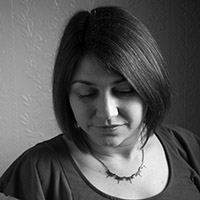 I usually write fiction and prose poetry, but the occasional poem comes out. “Study in Wine and Stone” is a not-quite-sestina that deals with the substantial legacies of food, war and slavery in Bordeaux, France (which I called home for 7 years). Now I live in San Francisco, CA, where I facilitate writing workshops, edit the online journal Rivet, and sing in the women’s a cappella group Conspiracy of Venus. deborahsteinberg.wordpress.com
I usually write fiction and prose poetry, but the occasional poem comes out. “Study in Wine and Stone” is a not-quite-sestina that deals with the substantial legacies of food, war and slavery in Bordeaux, France (which I called home for 7 years). Now I live in San Francisco, CA, where I facilitate writing workshops, edit the online journal Rivet, and sing in the women’s a cappella group Conspiracy of Venus. deborahsteinberg.wordpress.com
Emily Wall
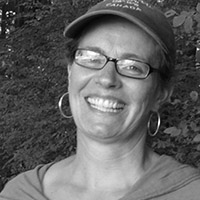 It wasn’t until I became a mother that I started to really think about food. In fact, I didn’t cook at all until my third child was born. Was it the fact that I had three girls and was already worrying about body image? Was it just that it was a way to fuel my exhausted self—inventing new recipes, learning to cook old family favorites? It’s probably all of those things and more. Before children I always rejected the kitchen as a symbol of the repression of women, and now I find myself embracing it, owning it, and using it to explore my own concept of woman.
It wasn’t until I became a mother that I started to really think about food. In fact, I didn’t cook at all until my third child was born. Was it the fact that I had three girls and was already worrying about body image? Was it just that it was a way to fuel my exhausted self—inventing new recipes, learning to cook old family favorites? It’s probably all of those things and more. Before children I always rejected the kitchen as a symbol of the repression of women, and now I find myself embracing it, owning it, and using it to explore my own concept of woman.
Sheila Webster Boneham
 Sheila Webster Boneham believes that life is a banquet with language, food, nature, and love served up as main courses. She also believes that it’s fine to start with dessert, although she would (almost) never read an ending first. Much of Sheila’s work focuses on environment and on animals, who acknowledge the pleasures of appetite and satisfaction. Always hungry for ideas (and hummus), Sheila holds a PhD in folklore from Indiana University and an MFA in creative writing from the Stonecoast program, University of Southern Maine.
Sheila Webster Boneham believes that life is a banquet with language, food, nature, and love served up as main courses. She also believes that it’s fine to start with dessert, although she would (almost) never read an ending first. Much of Sheila’s work focuses on environment and on animals, who acknowledge the pleasures of appetite and satisfaction. Always hungry for ideas (and hummus), Sheila holds a PhD in folklore from Indiana University and an MFA in creative writing from the Stonecoast program, University of Southern Maine.
